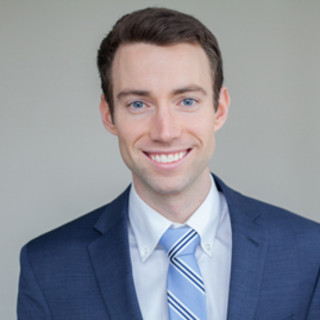
Interview season, a legendary time in every medical student’s life where they gallivant across the country interviewing at all their top programs. A time where rotation responsibilities are minimal, and opportunities to travel and see friends are bountiful. I envisioned being wined and dined by my favorite programs, and time to explore cool cities and hang out with friends. It was going to be a six month vacation, and one of the highlights of medical school. Like most medical students, it was the season I had been waiting for, and certainly hoped that my idealized dreams would be close to reality. Reflecting on the past few months, interview season has been an exciting time, but certainly not the glamorous experience I imagined.
After submitting ERAS in September, I entered a long period of waiting. Otolaryngology interviews later than most specialties, so while my classmates had interviews scheduled almost immediately, I received nothing for a month. Initially, the silence was freeing. After back to back away rotations, I needed a break. My application had been submitted, and it was out of my hands. Knowing I would not receive any interviews for a month gave me space to decompress before the interviews began. As classmates and friends began interviewing, I became anxious to start receiving invitations of my own. Once the invites started to come, the anxiety fueled, frantic email checking began.
The notification of an interview, waitlist, or rejection from a program began the rollercoaster of emotions characteristic of the season. Like most applicants, there were surprises and disappointments when it came to both interviews and rejections. I was elated to receive interviews at some programs I had dreamed about, but was down about rejections from other programs I was expecting to interview at. There were certainly patterns, but also a sense of randomness to the whole process. The disappointments led to the “What if?” questions with no clear answer. The emotional stress was compounded by the pressure to respond to emails as quickly as possible. I remember thinking upperclassmen had exaggerated this need, but realized that the sentiment was not overblown after missing out on my preferred date by responding to an email in four minutes.
Once interviews began, it seemed like I was living on an airplane. At first, the travel was fun and exciting. I explored new cities, and revisited old ones. Interviews provided an excuse to see friends from college in other cities. It was surreal to be in three or four different cities over the course a week. The travel became exhausting rather quickly, and exploring cities by yourself is not quite as wonderful as social media suggests. You do not realize how nice it is to sleep in your own bed until you spend multiple nights in a row away from it. The brief moments at home could be isolating as well. The chaotic and ever-changing nature of interview schedules made it hard to coordinate with friends who were in town. While I was home, they were often gone and vice versa. The travel compounded with the lack of interaction with close friends prevented me from feeling grounded during much of the season.
By the midway point of my interviews, the programs began to run together. Most have lots of similarities especially on the tours, and did you know that every city in the country has an up and coming brewery scene and tons of live music? Thankfully, the stress of the interviews themselves diminishes as you continually answer the same questions. I will have nightmares about being asked, “Do you have any more questions?” That question was especially painful in the last interview room at the end of an eight-hour interview day. The positive to seeing different programs is you realize there are many phenomenal programs where you would be happy and get great training. Figuring out a rank list is going to be difficult in the coming weeks because of the positive similarities between programs.
Meeting many wonderful co-applicants who became friends was one of the highlights of interview season. Otolaryngology is a small field, so I have had multiple interviews with many of the same applicants. The friendships formed made pre-interview socials much more enjoyable, and provided opportunities to share rides and meals. The fact that I enjoyed the people I will be working with for the rest of my career was encouraging, and confirmed my specialty choice.
Interview season is a long and exhausting process. It is incredibly exciting knowing that medical school is almost over, and the real work of being a doctor is about to begin. The experience certainly had some lows and was isolating at times. The steaks and fine wine I hoped for were more like two bags of airplane pretzels and a whole can of soda, and in a lot of cities, I saw the hospital and the airport. Like many parts of medicine, interview season was a necessary part of the progression to the next phase of training. Thankfully, there are many great programs around the country, and I was continually surrounded by people who will make the next five years enjoyable.
Cameron Todd is a fourth-year medical student at Tulane University School of Medicine going into Otolaryngology – Head and Neck Surgery. He is a 2018–19 Doximity Author.






